So, you want to do some programming but don’t have the budget of a major corporation? This is just the thing for you because all of these development environments are free of charge! Many Integrated Development Environments are marketed towards companies who have money to pay for such expensive environments. Here are the Top 5 Integrated Development Environments that are most widely used and recognized. Some will be used when programming past and future tutorials. The following are listed in no particular order and all make an excellent development environment.
There are alot more IDE’s out there that were not mentioned but should have been. We have posed the question at Hack A Day Answers “What are your Top 5 IDE’s?” Give us some feedback and we will be back with a revised list from the comments you give us!
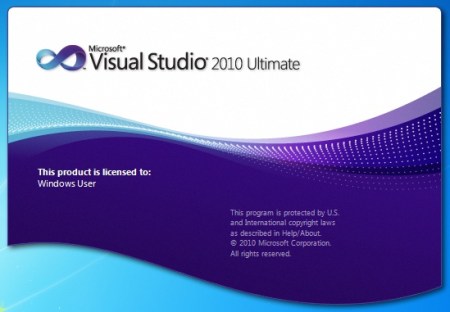
Visual Studio has an advantage when it comes to programming. This IDE is mostly used by corporate programmers to produce .NET code. Sometimes people want to try the product without investing thousands of dollars first, so Microsoft has the Express editions for all of their products. This makes it perfect for casual users that want to hack out some code as a hobby or programmers who need a free solution to code in C#. Be warned though, if the application developed by someone using the express versions of Visual Studio takes off and starts making money it would not be surprising to see big brother step in and start asking questions.
- Advantages
- Intellisense
- For those who don’t know what Intellisense is, here is a brief overview. Intellisense is Microsoft’s way to make programming in .NET as painless as possible. When you start programming in Visual Studios IDE you will notice a suggestion box will appear when you start typing anything within the IDE, this is to notify the user what methods and functions are available (R.I.P. Clippy). When clicking on one of the methods in the suggestion box the environment will tell you exactly what the method will do and how many and what parameters are needed. The ability to make decisions on what functions and methods to use based on intellisense is a powerful feature that many would find useful, if not life changing.
- Intellisense
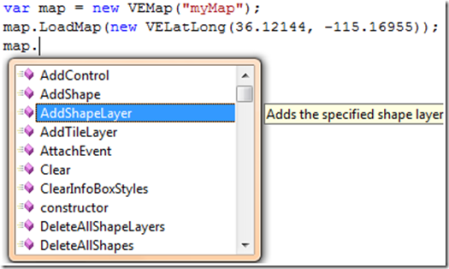
-
- Automatic code formatting
- With a product like Visual Studio you get what you pay for. When you start coding a method and go to enter the “{“ brackets, the code inside those brackets will actually indent to the right. A very handy feature for a code monkey who is just looking to get the program done. As well, there are options to enhance the colors to see variables as a different color than a method header which is very useful when going through hundreds of lines of code to find a bug. Both these things may be minute details but in the end are designed to save the developer time and money.
- Extensibility
- Something that you don’t like about Visual Studio? Code a new tool for it or use one of the many available to the developers using Visual Studio Gallery. This site is a wealth of fixes for things that developers didn’t like with Visual Studio and decided to fix.
- Compiles Code
- Automatic code formatting
- Cons
- CPU Hog
- When running Visual Studio it is a must that you have plenty of RAM to spare. This is a beast when it comes to developing apps and for good reason. If you take the plunge and sacrifice RAM to run this IDE you are equipped with one of the most comprehensive GUI’s (once you learn to navigate it) for developing in the .NET framework.
- Overwhelming GUI
- If you have never used Visual Studio before, then you are in for a surprise. When first starting it up, the layout of buttons and panes can be a little/very confusing at first. This will take time to adjust, so the downfall is there is a steep learning curve with the layout.
- Cost
- With the 2008 Professional edition of Visual Studio costing a thousand dollars (without MSDN subscription) and upwards if you are looking for additional features and subscriptions. This can be a real turn off for the hobbyists but that’s where the express versions will become redeeming.
- CPU Hog
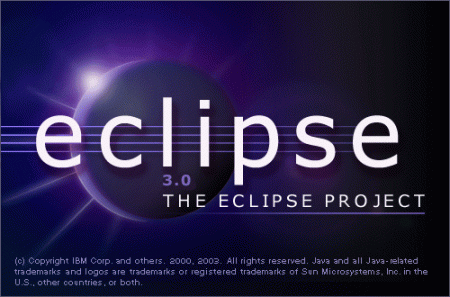
This is the best alternative if you are not a big fan of Microsoft’s Visual Studio. The interface is a lot cleaner and concise than Visual Studio and the languages that are possible to use extend past the .Net Framework. Besides being the number on way to develop Android applications via the Android SDK, it is fully extensible to use languages such as Ruby, C, C++ and many many more.
- Advantages
- Language Extensibility
- The languages mentioned above are not limited by Microsoft and anyone is free to develop plug-ins for different languages and to make the development environment easier to use. Also, the ability to use this on Linux is a great sway for many people who don’t like to be bound by Microsoft’s operating systems and like full control of their OS.
- Free
- Besides being fully customizable and extensible, the next best thing about eclipse is it’s free. This is good news for hobbyists and casual programmers wanting to just hack out some code in their free time.
- Compiles Code
- Language Extensibility
- Cons
- Steep Learning Curve
- With so much available to upgrade and add on, the learning curve of eclipse will be quite steep. The best way to get past this is to just try coding something. Making mistakes when coding could never be so beneficial. Once you start learning from your mistakes you will learn the fastest way to accomplish what you are trying to do.
- Steep Learning Curve
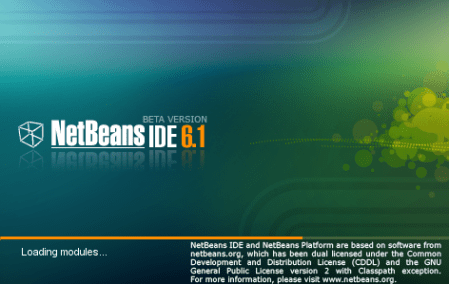
The is the number one alternative to Eclipse. This program is extensible and free, and it compiles code which is a bonus. When installing Netbeans it comes with a Java server called GlassFish that you could deploy on your computer for your testing environment. This server is the second biggest server for Java next to WebSphere (which is a whole different ball game).
- Advantages
- Extensible
- Again, extensibility is a must have for the development environments out there to survive. Instead of having multiple programs for multiple different languages combining them into one program gains recognition from developers and the software programs that combine it all but the kitchen sink are utilized more often because of the simplicity and ease of access to the languages developers want.
- Compiles Code
- Free
- Extensible
- Cons
- Bloated
- While using this program you may notice that your computer slows down, throws errors in your program that you didn’t know existed etc. This is a tough software program to master and when coding you have to be careful to dot the I’s and cross your T’s. This may not be the case for you and Netbeans might be all sunshine and rainbows but it is always best to be safe, rather than sorry later on when you have hundreds of projects.
- Bloated
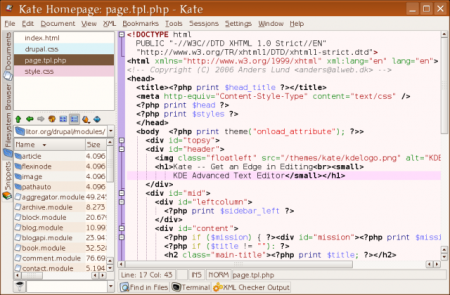
Kate is exactly how the website describes it, a text editor. Not to be looked down upon as it does a lot more than a regular text edit can do and that is what makes this an indispensable product.
- Advantages
- Uses Linux
- Code Folding
- This is probably one of the best features for kate. [Mike Szczys] explains that there is a small column to the left of the code. Any line that is an opening bracket that column will have an arrow next to it. If you click the arrow it will fold all of the code between the opening and closing brackets. Very useful for large source packages.
- Cons
- KDE Overhead
- 250 Mb of overhead just to use the application. This is not just one package but several packages that are required to be on the system just to start the application. This may not be the best choice if you are using a net-book for development purposes on the go but if you have a Linux box at home this would do just fine.
- Doesn’t Compile Code
- KDE Overhead

gedit is the official editor of the gnome desktop and comes installed once the system is setup. Very useful for the user that is casually editing code and not undertaking major projects. This would be a good companion to Netbeans or Eclipse.
- Advantages
- Uses Linux
- Already Installed on gnome systems
- This is a major bonus for Linux users. If the application is already installed on the system would you be more likely to use it? Either way, if you don’t have to hunt down a program from the software manager then it must be
- Code Highlighting
- gedit offers the ability to highlight your code and figure out where the bugs are by giving you a fresh perspective. This can also be used for web development, to help developers see where the start of nodes are and where to submit the end nodes, doing this could cut down drastically on XHTML issues. While it may not do almost everything like Netbeans or eclipse, it is a handy tool to have on the computer.
- Tabbed
- This feature allows multiple source packages open at once to jump back and forth between if need be. This is a highly useful when comparing documents and debugging code.
- Cons
- Doesn’t Compile Code
All of the development environments are amazing choices. It all depends on what you want to do when programming and the tools you would like to have available. Microsoft Visual Studio express editions came in first because of the extensibility and comprehensiveness of the product. This provides eclipse, netbeans and other development software a goal to reach for when marketing to the masses. Remember, it’s not the size of the install it’s how you use it. Until next time, Happy Hacking!

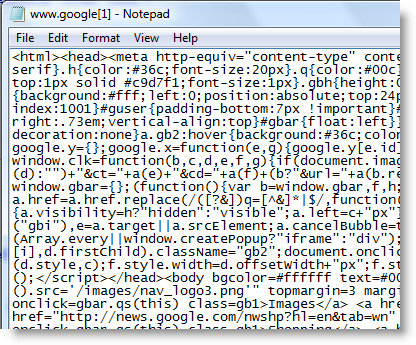














mono doesn’t have anything to do with visual studio, it’s just an open-source set of tools for c#/CLR, primarily used for translating .NET programs to other architectures, because honestly nobody else wants to use c#
Im a poor programmer because I have lot’s of bug.
I often had to use very shitty methode for debugging (printf style in c/java and even worst on microcontroller)
Visual studio have the BEST DEBUGGER EVER,
QT one is slow and buggy,
netbean’s debugger really suck, (it’s java…)
don’t know about eclipse,
and with gedit, kate etc, you have to do “printf style” waste of time…
Is there no diff between an editor and an “ide”. I thought all ide’s must have the ability to integrate all your tools from compilation to debugging, version management being optional.
There are 100s of editors out there, so I wouldn’t include an editor as an “ide”.
Comparison between VS,Eclipse and other editors is unfair !
In fact, we could use editors like vim “inside” Visual Studio.
I use vim because its cross platform and lightweight for editing.
Also, I think Eclipse is also heavy and slow, but extremely extensible.
i second the slickedit – all around great program. every once in a while i try to switch to eclipse, but i keep coming back to slickedit.
Netbeans is bloated, and Eclipse is not? You GOTTA be kidding!
My Eclipse has a starting footprint of about 220 Megs, which can rise so a Gig. Netbeans has a starting footpring of 30 Megs, rising up to 200 Megs.
Yeah, one more vote for all mighty Emacs. Now if you do some statistics from these responses, you can easily see Emacs is quite popular choise, also vim have alot of votes (yes, vim is lighter/faster to start-up but..).
vim FTW
What do you mean Kate doesn’t compile code? It has a terminal window built in, where you can invoke the compiler directly while staying in the same window. On the other hand this also lets you use irssi, so it may be a wash productivity-wise.
Code::Blocks is conspicuously missing.
Two of the entries are functionally text editors not IDEs – the ability to compile code doesn’t make it a full IDE. Plus, including text editors with programming utility on Linux without going to VIM/Emacs…wtf? Either of those will eat both Kate and gedit for breakfast, and they are much more broadly used beyond the “I wrote a Python script once” level.
Besides, the question is a bit broken already if we’re not starting from a specific language or development scenario.
Many people her seem to be confused on what an IDE is. notepad++, gedit, kate, vi, etc….are TextEditors not Integrated Development envirornments. to know the diff see wikipedia….:)
I was surprised the article didn’t make more of debugging features. I haven’t used everything mentioned, but VS is fantastic at this. I would be interested to know if any other IDEs are as good in this regard.
Thankgod for VS 2010 and resharper. Code refactoring and other advanced features make working solutions with 10 or more projects manageable. Could not and would not do without it. Eclipse is well behind VS. Dotnet 4 Rocks. Java is sinking with the oracle legal onslaught – slowly but surely.
So you’re saying Notepad doesn’t count as an IDE? =)
Notepad ++ ???????????????????????????????????????????????????????????????????????????????????????????????????????????????????????????????????????????????
I use VS 2008 and more recently VS 2010 which is really amazing.
But there is an other excellent multi language IDE which have not been mentioned here: Aptana Studio. Its free and is it the closest product to VS that I have seen so far. Give it a try. The code formatting personalization is quite extensive as every aspect of the product are.
I still use VS because I mainly develop in C#, .Net 4, MVC 2 and Entity Framework and VS is still the best at it. For anything else, I use Aptana.
Komodo is great. Free, extensible, lots of contributed extensions, and an active forum. Supports almost all popular languages. Activestate has made a powerful tool that ca be upgraded to the professional and team levels as needed.
I would recommend trying it.
Less than a full-blown IDE, but more than a basic text editor:
http://code.google.com/p/fxite/
Cross-platform, open source, freeware.
The pre-compiled Win32 executable runs on Windows 98 thru Windows 7 with no additional libraries.
The pre-compiled Linux and FreeBSD binaries need only a basic xorg installation, no Java or QT/KDE or GTK/Gnome is required.
(Compiling from source requires Fox GUI toolkit.)
I started using visual studio to do scientific simulation work, cos well, it was an obvious choice. Hated it. Understand why corporate types have to use it, makes things “easier”, aids group work.
Tried lots of things: Eclipse, Netbeans, Vim, KDevelop, etc.
Always come back to Emacs though. It kicks everything else out of the park. Does everything, but keeps it’s simplicity. Gedit for easy reading and tabbing.
Are you sure visual studio is extensible? In past versions, the Standard and Professional versions allowed plugins, but the express edition didn’t.
I’d be really happy to see that changed in the 2010 version, but I didn’t think it was. Also not available in past express editions is source control integration(which is basically a plugin).
Still, for free, VS is amazing. Although MonoDevelop, the new Linux .NET IDE is gaining on it fast.
Love For You
You should note that Visual Studio has “outlining”, which is a fancy version of the code folding you mentioned for one of the other IDEs. This one feature is a great timesaver.
nah, working with Eclipse is fast.. i have my mom’s PC (a Pentium 3 866MHz, slapped 768mb of ram in it and Win2k), and Eclipse runs great.. i just have to convince my mom to program too :p
TURING is an old one, not too fast, but its free and resembles C+. A good start for hobbyist.
NEX IDE. User developed: http://www.hackforums.net/showthread.php?tid=2328322&page=2
Sublime Text 2?
http://www.sublimetext.com/
Bluefish?
http://bluefish.openoffice.nl/index.html
Ultra Edit and PHPStorm are my favs!
NetBeans is OpenSource IDE fro the professional developers for all development languages… :) http://www.netbeans.org
What about Foo Basic Web Edition IDE its free and good! Better than dealing with the harder ASP.NET
Foo Basic is located at http://www.fooBasic.com
If you cannot write everything in notepad you have no business writing code at all! Only frail children, indigents, miscreants, misanthropes and the weak willed choose the cowards way out! These so called productivity tools are the work of Satan in order to make developers dependant on Satan to write code thus positioning himself possessor of the ONLY tool worthy of making quality websites!!! Frontpage!
Visual Studio is my best. Less shipping time and a lot more!!!!!!!!!!!!!!!!!!!!!!!!!!!!!!!!!!!!!!!!!!!!!!!!!
Very useless list